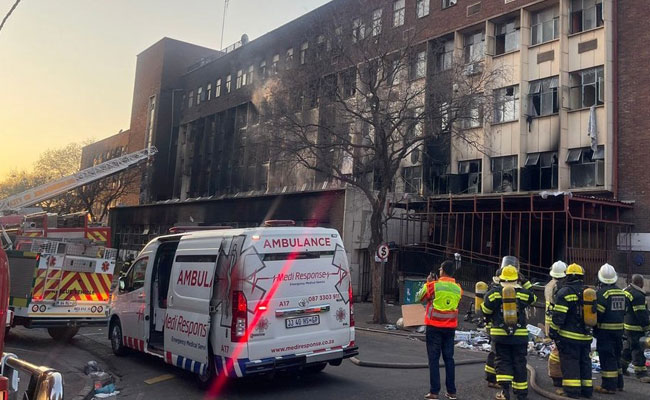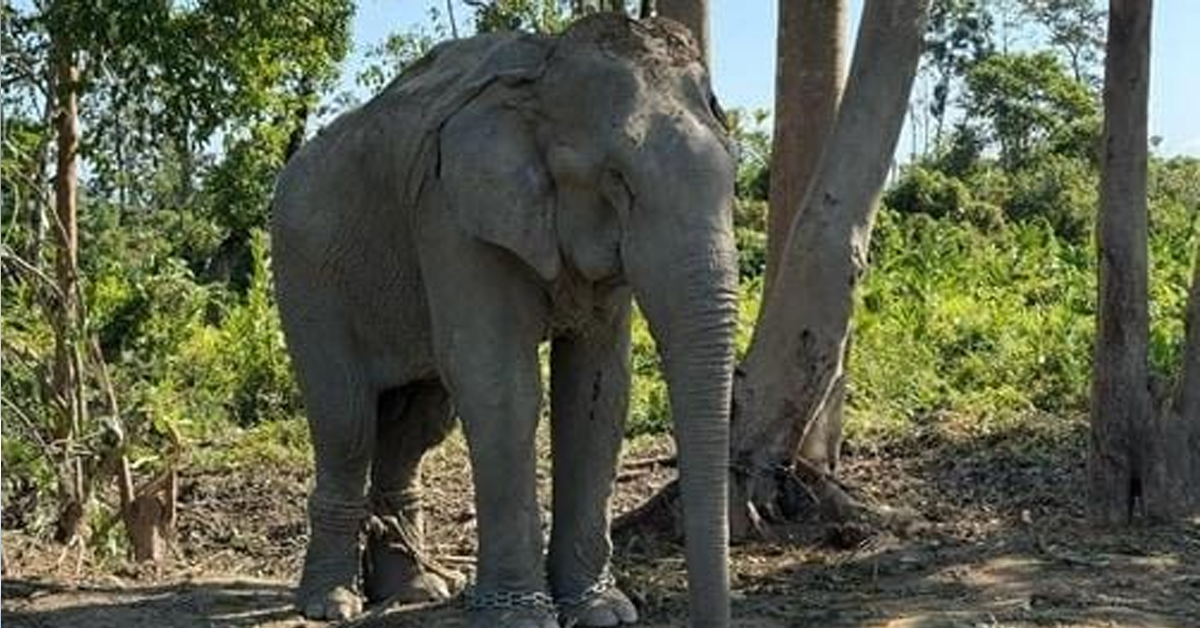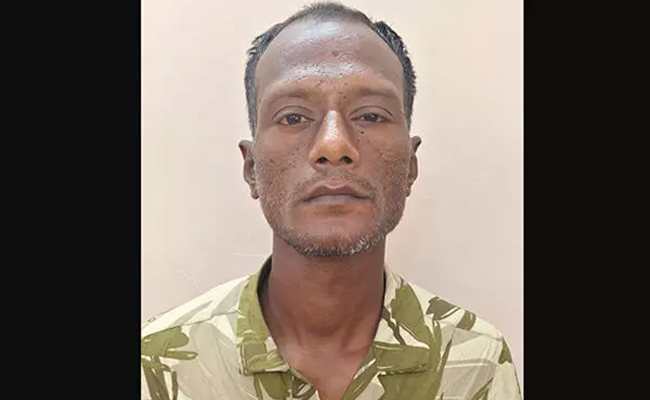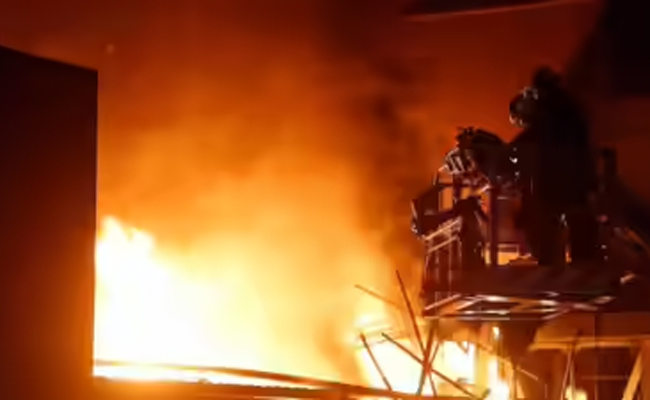Johannesburg (PTI): At least 64 people were killed and 43 others injured after a massive fire broke out on Thursday in a multi-storey building occupied by migrants in the central business district here in South Africa's biggest city, emergency services said.
Authorities said it was unclear what sparked the blaze at the five-storey building in the city centre.
City of Johannesburg emergency services spokesperson Robert Mulaudzi said firefighters were alerted to the fire in a building on the corner of Delvers and Alberts streets at about 1:30 a.m.
Dozens of emergency and rescue workers are still on the scene as bodies continue to be brought out.
"We managed to evacuate the people who were inside the building as soon as we arrived while we were conducting firefighting operations," Mulaudzi said, adding that most of those treated for injuries had suffered smoke inhalation or minor injuries.
Mulaudzi said arrangements were being made to accommodate those who had been left homeless by the incident.
The fire gutted the building.
A total of 64 bodies were recovered and 43 were injured in the fire, Mulaudzi said.
A video posted by Mulaudzi on X, formerly known as Twitter, showed fire trucks and ambulances outside the building with burnt-out windows.
A toddler was among the deceased.
Of the injured, some suffered smoke inhalation with others sustaining minor injuries.
Mulaudzi said the fire had been contained and that they were busy with "damping down" as well as search and recovery operations.
He said the death toll may increase because there was an informal settlement inside the building which may have resulted in people being trapped while trying to flee.
"Every floor has an informal settlement, and those that were trying to evacuate were trapped because of the structures between the floors," the News24 website quoted Mulaudzi as saying.
"We have informed people who are at the scene looking for their relatives that chances of finding them alive are very slim."
The building is one of many in the once bustling district of Johannesburg that has been hijacked by criminal elements who then let them out to desperate migrants, both legal and illegal, who need accommodation.
Often, this is despite there being no electricity, water, or sanitation services as the municipality discontinues these in abandoned buildings in an attempt to make them safer.
"There are dozens of shacks inside this building and there must be a few hundred people living in small shacks into which the five floors have been divided," said a resident from Tanzania, who lives next to the building and refused to be identified as he said he was still struggling to get refugee status.
He said most of the residents in several buildings in the area were illegal migrants from African states who came to the economic heart of South Africa in search of jobs, but most had to struggle to make ends meet as these were very scarce.
He said there were also South Africans from rural areas who did that and who were also exploited by unscrupulous criminal syndicates who have hijacked the buildings.
"Most of us are forced to use candles for light and cook on small paraffin stoves and some even use boulas (open fires made in old steel drums), which are very dangerous in closed buildings. I'm not sure how this fire started, but last night was cold and it could have been something like that," he said.
He added that there were some families with small children living in the building.
"I don't see much hope for anyone else coming alive out of that building now. We just see firemen bringing out bodies one by one. It's very sad!", said another woman, who also lives in a shack nearby, again refusing to be identified.
Hundreds of economic migrants live in makeshift homes on empty land and even some streets or converted small sections of buildings in the suburbs surrounding the centre of Johannesburg.
Those injured in the blaze were taken to hospital.
Officials from the City of Johannesburg disaster management have been activated to facilitate relief for affected families.
Let the Truth be known. If you read VB and like VB, please be a VB Supporter and Help us deliver the Truth to one and all.
Pilibhit (PTI): A 19-day-old elephant calf, brought from Bijnor, was placed under care at the Pilibhit Tiger Reserve (PTR) on Sunday, an official said and added that the calf got separated from its mother in the forest area of Bijnor.
The calf was born on December 2 in the Bijnor forest area and got separated from its mother shortly after birth, the official said.
The forest department made several attempts to reunite it with its mother, but without any success. To ensure the calf's safety and better care, it was decided to transfer it to the Pilibhit Tiger Reserve on the instructions of senior officials.
On Saturday, Deputy Director Manish Singh received the calf. Special arrangements have been made in the reserve for its care. It has been kept in a safe and clean environment to provide it with a natural setting and protect it from external noise and disturbances.
Singh told reporters that raising an 19-day-old calf is challenging.
It requires a special diet as a substitute for mother's milk and constant monitoring.
He said a special team has been formed to provide 24-hour care. Since the calf is very young, it is being cared for like a newborn baby.
According to Singh, the primary responsibility for monitoring the calf's health has been entrusted to PTR's veterinarian, Dr Daksh Gangwar. Under his supervision, a complete record of the calf's health checkups, diet, and body temperature is being maintained. The team is ensuring that the calf does not contract any infection.





